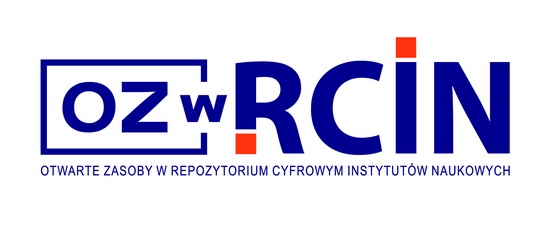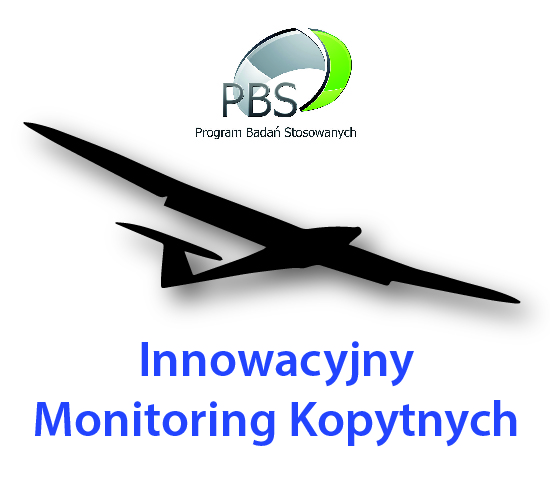Rekrutacja 2012
Kolejny nabór na studia doktoranckie odbędzie się jesienią 2012 roku.
Kandydaci zainteresowani podjęciem prac nad doktoratem w Studium powinni wybrać temat (patrz Tematy), uzyskać akceptację przyszłego opiekuna naukowego i złożyć dokumenty (patrz Rekrutacja) w Sekretariacie Muzeum i Instytutu PAN do dnia 17 września 2012. Rozmowa kwalifikacyjna odbedzie się 2 pażdziernika br; poczatek godz. 11.
Siedzibą administracyjną Studium Doktoranckiego jest Muzeum i Instytut Zoologii PAN, ul. Wilcza 64, 00-679 Warszawa, tel. 629 32 21
Kierownikiem Studium jest prof. dr hab. Joanna Gliwicz (adres i tel. jak wyżej);
e-mail: This email address is being protected from spambots. You need JavaScript enabled to view it.
Regulations
Regulations
International Doctoral School for Biological Sciences
at the Museum & Institute of Zoology, PAS
(set out according to the decree by the minister of science and higher education,
dated December 19th 2006 on the courses of doctoral studies run by scientific institutions, Act Report 2007, no.1, item 2)
I GENERAL PROVISIONS
§ 1
1. The International Doctoral School called into being by the Decision of the Director of the Museum and Institute of Zoology PAS, with the participation of the Director of the Institute of Palaeobiology PAS on the basis of an agreement concluded between these entities. The School seat shall be the Museum and Institute of Zoology PAS, 00-679 Warszawa, Wilcza 64.
2. The Studies Course offers training to the level of Doctor of Biological Sciences in the fields of biology, ecology and palaeobiology. The PhD studies pursued by means of full-time day (intramural) studies.
3. The School Council exercises supervision over progress of the students; the Council consists of two representatives of each Institutes, as well as the School Head.
4. Doctoral studies are under the direction of the School Head, who shall be appointed by the Director of the Museum and Institute of Zoology PAS, having first received the opinion of the Scientific Council.
5. Doctoral studies shall be of 4 years’ duration, albeit with a possibility of a one-year extension in particularly justified cases.
6. The path to obtainment of the doctoral title should be made available to participants on the Study Course not later than in the third year or the beginning of the fourth year the of studies.
7. The results of the scientific research carried out by the doctoral student shall constitute the property of the Institute in which the research has been conducted.
II DETAILED PROVISIONS
§ 2
1.Applicants may be of either Polish or foreign citizenship, but must:
a/ have a Master’s degree, or equivalent;
b/ obtain the acceptance of the future PhD thesis supervisor to assume the responsibility for their the doctoral work in case of successfully passing the recruitment process
c/ successfully pass through the qualifying interview before the Recruitment Commission
2. Acceptance for doctoral studies is decided upon by the Institute Directors following recommendation by the School Head.
§ 3
1.The main obligations of the PhD students are to follow the study program and rules, and in particular:
a/ to engage in systematic scientific and academic work under the guidance of the supervisor, with a view to studies being completed timely,
b/ to participate in the courses required by the study program,
c/ to take part in scientific conferences, seminars, workshops, summer schools and other activities suggested by the Supervisor and/or recommended by the School Head,
d/ to publish and disseminate his/her scientific and academic accomplishments, following consultation with the Supervisor,
e/ to submit to the School Head written annual reports on progress in studies and scientific research; these reports being deemed to constitute the basis for a student’s passing successfully from one academic year to the next.
§ 4
1.The School Head:
a/ organizes recruitment and chairs the recruitment commission
b/ manages ongoing activity of the School,
c/ maintains direct contact with School students and their Supervisors
d/ takes decisions as regards participants’ successful passing from one year of studies to the next, and makes recommendations to the Directors regarding, if necessary and justified, extension of study periods or expelling participants from the School.
2.The School Council:
a/ approves the rules and study programs (curricula),
b/ appoints the Recruitment Commission
3.The PhD thesis Supervisor
a/ extends all kinds of assistance to the PhD students under his supervision,
b/ provides annual opinions on the student’s progress ;
c/ plays, if possible, an active part as a lecturer in courses organized by the School.
§ 5
1.Participants on the School are bound by the regulations and ordinances of the Director of the Institute in which doctoral studies are taking place.
2. PhD students may obtain a scholarship granted by the Directors of the participating instututes, on the basis of the provisions laid down in the ministerial decree of December 19., 2006 on doctoral studies run by scientific institutions (the Act Report of 2007, No. 1, item 2), with subsequent amendments.
3.Participants on the doctoral study course have the right to:
a/ 8 weeks holidays per year, in line with provisions set out in the Study Program,
b/ the services of public healthcare institutions in line with principles established for employees of the Institutes,
c/ prolongation of the period of doctoral studies by the period of time equivalent to maternal leave, as well as enjoyment of services rendered during that period,
d/ The non-working spouses and children of participants in School take advantage of services extended by public healthcare institutions in line with principles determined for members of employees’ families.
§ 6
1.The completion and prolongation of doctoral studies:
a/ the PhD studies end on the 30th September of the fourth academic year,
b/ in justified cases referred to in § 7 of the Regulation of December 19th 2006, with subsequent amendments, the Institute Director may prolong the period of doctoral studies by one year,
c/ in justified cases, the School Head makes recommendation to the Director regarding the prolongation of the study duration to the particular student, having received the opinion of the student’s Supervisor. d/ students failing to earn the PhD degree within the period of time foreseen in this regulation will not have the costs of the degree procedure covered.
2.Deletion from the list of School participants:
a/ a student failing to make the necessary progresses in scientific work or failing to meet requirements of the study curriculum may be expelled from the School.
b/ a request for expelling the participant from the School is submitted to the Director of the Institute by the Head of the School, after consultation with the Supervisor and the School Council.
III FINAL PROVISIONS
§ 7
1.The School Council shall enjoy the right to decide on matters not provided for in these Regulations and not encompassed either by the decrees mentioned in the introduction to these Regulations.
|
Przewodniczący Rady Naukowej Muzeum i Instytutu Zoologii PAN |
Dyrektor
|
Rozmowa
Rozmowa kwalifikacyjna
Celem rozmowy jest sprawdzenie motywacji, zainteresowań i uzdolnień kandydata do pracy naukowej, umiejętności stawiania i sprawdzania hipotez naukowych, a także znajomości języka angielskiego.
Jakich pytań należy oczekiwać?
- o wyniki swojej pracy magisterskiej i krytyczną ich ocenę,
- o koncepcję realizacji tematu pracy doktorskiej,
- o działanie mechanizmów ekologicznych i ewolucyjnych,
- o światowe nowości w dyscyplinie kandydata (np. na podstawie lektury Świata Nauki, Kosmosu, działów naukowych z codziennej prasy i z internetu, z Nature, Science).
Ponadto:
- ponieważ w skład komisji kwalifikacyjnej wchodzą specjaliści z dziedziny zoologii, ekologii i paleobiologii można oczekiwać pytań z tych dyscyplin, nawiązujących do tematyki i obiektu pracy naukowej kandydata;
- trzeba też być przygotowanym na krótką konwersację po angielsku na powyższe tematy.
Study program
Study Program
of the International Doctoral School for Biological Sciences
at the Museum and Institute of Zoology, PAS
(set out according to the decree by the minister of science and higher education,
dated September 1, 2011, Act Report no. 196)
I. Scope of the PhD studies
- The table outlining the detailed program is set out at the end of this document
- The program courses and activities, corresponding to 60 ECTS points, include:
- mandatory subjects
- optional subjects
- seminars
- workshop developing teaching skills
- individual tasks monitored by the supervisor
- individual preparation for the doctoral exams
- Mandatory subjects (total of 60 ECTS points). PhD students are required to attend the courses (≥ 60 h in total) and pass the exams of the following subjects:
- Evolution/ Evolutionary ecology
- Statistics
- Molecular techniques for taxonomic, ecological and evolutionary research
- Contemporary problems of biodiversity conservation / nature protection.
- Optional, complementary subjects (min. 4 ECTS in total). PhD students are required to attend at least 60 h of the additional subjects selected, after consultation with their supervisor and/or the Doctoral School director, out of educational offers of their institute, other institutes of PAS and universities. The course completion (with the final grade or without) must be confirmed in the student’s index by the course lecturer.
- Attendance and active participation in the doctoral seminars is obligatory on each year of the PhD studies.
- Workshop developing teaching skills (10 ECTS point), added recently to the PhD curriculum by ministerial decree, improves student’s practical teaching qualifications
- Individual tasks supervised by the PhD adviser are directed towards preparation of the dissertation and include acquiring necessary skills and learning of specific techniques of data collection, data analysis, ms writing etc.
- Individual preparation for the doctoral exams. PhD students are required to pass three doctoral exams (at least two of them during 4 years of the School attendance):
- Philosophy
- Foreign language
- Biology (field of specialization)
II. Rules of the program implementation
- Each academic year starts on October 1 and ends on September 30 of the next calendar year.
- The 8-weeks long holiday must be planed carefully as to not interfere with the research and courses, and set with the supervisor.
- Completion of each academic year is confirmed by the School director on the basis of :
- annual report on study and research achievements submitted before June 30
- student’s index with all required entries
- an extensive opinion of the supervisor on the progress in the research.
- At the end of the 2nd academic year students are required to present a published paper.
- The procedure leading to PhD degree should be open formally during the third or at the beginning of the fourth academic year.
III. Examples of the optional courses recommended for our PhD students:
- Advanced research methods; e.g. GIS, radiotelemetry, ecological chemistry
- Advanced statistics methods; mathematical modeling
- Modern systematics and zoogeography;
- Advanced population/metapopulation ecology
- Ecotoxicology
- Characteristics of the fossil records.
- Geological history of Earth ecosystems and environments.
|
Subject |
ECTS points |
Duration (in hours) |
Passing form |
||
|
lectures |
labs/ workshops |
seminar |
|||
|
Mandatory subjects ( I or II academic year*): |
|||||
|
Evolution or evolutionary ecology |
2 |
30 |
|
|
exam |
|
Statisctics |
2 |
30 |
|
|
exam |
|
Molecular methods |
2 |
15 |
15 |
|
exam |
|
Nature/ biodiversity conservation |
2 |
30 or 15 |
15 |
|
exam |
|
I academic year |
|||||
|
Mandatory subjects |
4 |
45 |
15 |
exam |
|
|
Optional subjects |
2 |
30 |
course credit |
||
|
Seminar |
2 |
30 |
course credit |
||
|
Individual tasks set by the supervisor |
8 |
|
200 |
course credit |
|
|
Total : 320 hours |
16 |
75 |
215 |
30 |
|
|
II academic year |
|||||
|
Mandatory subjects |
4 |
45 |
15 |
exam |
|
|
Optional subjects |
2 |
30 |
course credit |
||
|
Seminar |
2 |
30 |
course credit |
||
|
Individual tasks set by the supervisor |
8 |
|
200 |
course credit |
|
|
Total: 320 hours |
16 |
75 |
215 |
30 |
|
|
III academic year |
|||||
|
Seminar |
2 |
30 |
course credit |
||
|
Workshop for developing teaching skills |
10 |
15 |
course credit |
||
|
Individual tasks set by the supervisor |
6 |
185 |
course credit |
||
|
Total: 230 hours |
18 |
- |
200 |
30 |
|
|
IV academic year |
|||||
|
Seminar |
2 |
30 |
course credit |
||
|
Individual tasks set by the supervisor and preparation for doctoral exams |
8 |
200 |
|
two exams |
|
|
Total: 230 hours |
10 |
- |
200 |
30 |
|
* it is assumed that half of the mandatory subjects will be completed at the first academic year and the rest at the second academic year.
Tematy 2018
MIZ PAN
- Wpływ charakterystyki gniazda na wzorzec wysiadywania i koszty inkubacji
na przykładzie dziuplaków
Opiekun – dr hab. Tomasz Mazgajski This email address is being protected from spambots. You need JavaScript enabled to view it.
Doktorant otrzymuje stypendium w ramach projektu NCN. Intensywne prace terenowe
(w okolicach Warszawy) w okresie lęgowym sikor (kwiecień-lipiec).
- Charakterystyka peptydów antybakteryjnych (AMP) zawartych w hemolimfie larw Megaselia scalaris(Diptera, Phoridae)
- opiekun: dr hab. Ewa Durska (Muzeum i Instytut Zoologii PAN) >This email address is being protected from spambots. You need JavaScript enabled to view it.
- opiekun: dr hab. Radosław Stachowiak (Zakład Mikrobiologii Stosowanej Wydziału Biologii UW) >This email address is being protected from spambots. You need JavaScript enabled to view it.
Praca w laboratorium, prowadzenie hodowli Megaselia scalaris.
UWAGA: Doktorant może zgłosić własny temat, jeśli znajdzie wśród naukowców MiIZ PAN
opiekuna rozprawy o proponowanej tematyce.
Inst. Paleobiologii PAN
Informacja o tematach na stronie http://www.paleo.pan.pl/pl/opis_studiow.html
Doctoral School
IN THE BIOLOGICAL SCIENCES
AT THE MUSEUM AND INSTITUTE OF ZOOLOGY, PAS
The Museum and Institute of Zoology PAS in cooperation with the Institute of Palaeobiology PAS has founded the International Doctoral School for Biological Sciences aimed at education of specialists in zoology, ecology or palaeobiology. More precise information on the School, its requirements and the rules of recruitment can be found at the following links: Study program, Regulations, Recruitment.
Contact: The School Head Prof. dr hab. Joanna Gliwicz, e-mail: This email address is being protected from spambots. You need JavaScript enabled to view it. This email address is being protected from spambots. You need JavaScript enabled to view it.
The administrative seat of the Doctoral School is the Museum and Institute of Zoology PAS, Wilcza st. 64, 00-679 Warsaw, tel. (48) 22 629 32 21.
Recruitment
Terms of Recruitment for the International Doctoral School in Biological Sciences
at the Museum and Institute of Zoology PAS
I. General conditions
- Both Polish citizens and foreign nationals with a Master of Science degree or an equivalent qualification are eligible to apply for admittance to the 4-year intramural Doctoral School in the Biological Sciences.
- Fluency in the English language is required.
- The candidate should select the topic/subject of their thesis studies from the currently offered projects (or propose her/his own) and must receive preliminary approval from one of the supervisors/professors at the Institute.
- The candidate must submit all required documents before the deadline and successfully pass the recruitment process.
II. Required documents
- A completed application form with signed consent of a prospective supervisor, plus two passport style photographs .
- An official copy of their Master’s diploma, or temporary certification of completion of MSc studies. A candidate submitting a certification document is required to supply their diploma once she/he has been accepted to the Doctoral School.
- An academic CV including full personal details, training and academic accomplishments to date, along with a short description of the candidate’s interests and other achievements, plus a list of publications.
- Any candidate accepted to the School who is currently employed by another institution should provide written consent from their employer for the duration of their doctoral studies.
III. The recruitment process
- The recruitment process is usually carried out in September. The exact time will be announced by the Director of the Museum and Institute of Zoology and made public on the Internet and as a printed announcement displayed within the Institute, at least 3 months before the deadline for applications.
- Selection will be made on a competitive basis.
- Candidates will be assessed by a Recruitment Commission appointed by the Scientific Council of the Museum and Institute of Zoology PAS.
- Candidates meeting the general conditions will be invited for interview (see Interview). A candidate’s prospective supervisor will participate in this interview.
- The final decision to accept a candidate for the Doctoral School is made by the Director on the recommendation of the Head of the Doctoral School.
- Candidates will be informed of the results of the recruitment process within 1 week of the interview.









